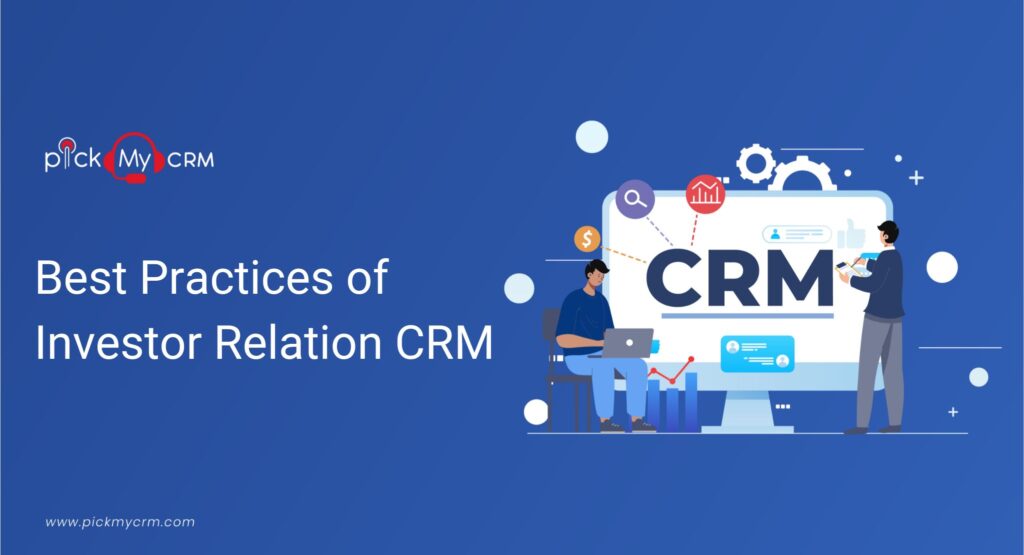Best Practices of Investor Relation CRM

What is an Investor Relations CRM?
An Investor Relations CRM, at its core, is an intricate orchestration of technology and strategy, designed to harmonize interactions between corporations and investors. Beyond a simple tool, it embodies a holistic approach to communication, an all-encompassing gateway to manage and enhance investor relations. Such systems encompass a spectrum of functionalities: managing investor profiles, orchestrating communication, and yielding insights that steer the corporate ship.Investor Relation CRM Best Practices
- Holistic Data Management: The foundation of effective investor relations lies in data. CRM best practices dictate meticulous organization, encompassing not just contact information, but also historical interactions, preferences, and market trends. This comprehensive understanding drives personalized communication.
- Strategic Segmentation: Investors are diverse entities with varied interests. Employing segmentation based on criteria such as investment history, risk appetite, and industry preference allows for tailored communication, nurturing stronger bonds.
- Automated Workflow: Time, a finite resource, necessitates its judicious allocation. CRM systems shine in their ability to automate routine tasks—sending updates, managing document distribution, and even flagging opportunities, and releasing human capital for higher-level strategic endeavors.
- Real-time Communication: The modern investor craves immediacy. CRM tools offer channels for real-time communication, ensuring that market developments, corporate announcements, and concerns are promptly relayed.
- Comprehensive Analytics: Insight fuels progress. By analyzing investor interactions, preferences, and response patterns, CRMs empower corporations with actionable intelligence. This facilitates informed decision-making and more effective engagement strategies.
Best Investor Relations CRM
Within the constellation of Investor Relations CRM, several stars shine bright:- Salesforce Investor Relations Cloud: Revered for its versatility, this CRM juggernaut offers a plethora of tools tailored to investor engagement, from personalized investor portals to AI-powered predictive analytics.
- IR Contact: A dedicated platform, IR Contact, aligns seamlessly with investor relations. It ensures timely communication, backed by analytics that facilitates strategic decision-making.
- Nasdaq IR Insight: Nasdaq's offering stands as a bastion of comprehensive investor engagement tools, boasting features like shareholder targeting, perception studies, and advisory services.
- Diligent Boards: Although primarily recognized for governance, Diligent Boards incorporate investor engagement features, including secure document sharing and interactive reporting.



